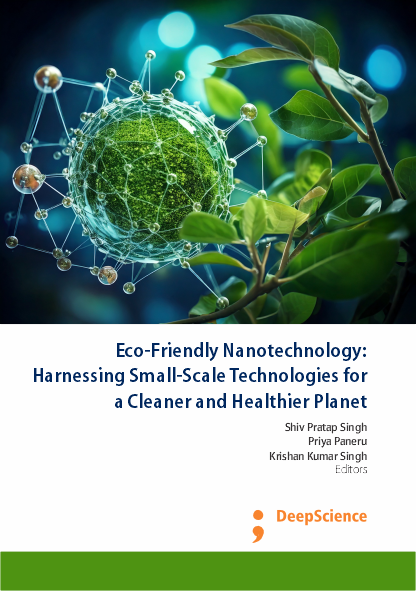Nanotechnological approaches for enhancing climate resilience and sustainable adaptation in agriculture
Synopsis
Environmental sustainability, soil deterioration, water scarcity, and chemical overuse have arisen from global agriculture's rapid growth. Nano-enabled sustainable farming is a breakthrough method that boosts agricultural productivity while reducing environmental effect. Nano-enabled sustainable farming has the potential to alter agriculture, as this article discusses future trends and developments. Nanotechnology has promising uses in precision farming, soil health enhancement, and resource-efficient agriculture. Nanofertilizers and nanopesticides reduce chemical runoff and increase soil and water conservation by delivering nutrients and controlling pests. Nanosensors allow farmers to make data-driven crop management decisions by monitoring soil, plant, and ambient conditions in real-time. Nano-based smart delivery systems manage pesticide release, lowering toxicity and improving eco-friendly agriculture. Trends show that nanotechnology will help build climate-resilient crops by mixing nano-bioengineering with genetic alterations. The usage of carbon-based nanomaterials, such as graphene oxide and carbon nanotubes, can boost seed germination, plant growth, and stress tolerance. Nano-enabled water filtration and desalination devices are being investigated for irrigation in water-scarce areas. The large-scale implementation of nano-enabled farming faces hurdles such as regulatory frameworks, potential environmental hazards, and public perception of nanoparticle safety in food systems. Future studies should focus on the long-term impact of nanomaterials on ecosystems and human health, guaranteeing safe and sustainable implementation. In conclusion, nano-enabled sustainable farming represents a paradigm change in modern agriculture, bringing creative ways to boost crop productivity, resource efficiency, and environmental sustainability.
Keywords: Nanotechnology, Climate change, Resilience, Sustainable solutions, Modern agriculture.













